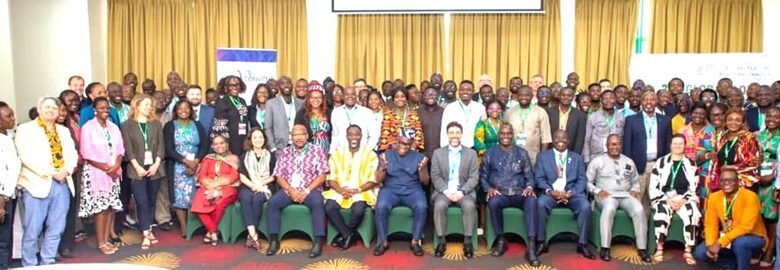Ghana Strengthens Biosafety Frameworks to Advance Genetic Biocontrol Technologies

Ghana remains committed to strengthening biosafety frameworks and advancing genetic biocontrol technologies to combat malaria and enhance public health, Minister for Environment, Science, Technology, and Innovation, Dr. Ibrahim Murtala Muhammed, has stated.
Speaking at the 2nd Global Congress on Genetic Biocontrol Technologies in Accra, Dr. Muhammed highlighted the collaborative efforts between Ghana’s National Biosafety Authority and the African Genetic Biocontrol Consortium as a crucial step toward ensuring informed and transparent decision-making in biotechnology regulation.
“The burden of malaria cases in Africa, particularly in Sub-Saharan Africa, remains high, and despite numerous interventions over the years, it continues to be a major cause of mortality and morbidity in Ghana,” he noted. “I am extremely proud that our research scientists at the University of Ghana and the Noguchi Memorial Institute for Medical Research (NMIMR) are working with global counterparts on gene drive research to explore innovative ways to curb malaria transmission.”
The Congress, hosted in Ghana, brought together researchers, policymakers, and industry experts to discuss genetic biocontrol as a tool for managing diseases and environmental challenges. Dr. Muhammed emphasized the need for building regulatory expertise, stating, “This Congress provides a platform to identify capacity-building needs and explore strategies to strengthen regulatory frameworks both regionally and internationally.”
Harnessing Genetic Biocontrol for Disease and Environmental Management
Dr. Willy Tonui, Founder and Executive Director of the African Genetic Biocontrol Consortium, described genetic biocontrol as a transformative scientific tool capable of addressing public health and environmental challenges. He commended Ghana for its openness to knowledge-sharing and innovation, saying, “Ghana is one country that adopts knowledge quickly and builds capacity in unique ways, which makes it an ideal host for this important discussion.”
He explained that gene drive technology, which is being tested in laboratories, has shown promise in controlling malaria-transmitting mosquitoes. “While the technology is still in the research phase, the participation of Ghanaian institutions such as NMIMR in global collaborations is vital in ensuring that Africa plays a leading role in developing and implementing such innovations,” he added.
Dr. Tonui further stressed the importance of strengthening institutional biosecurity, noting that while many African countries have biosafety authorities experienced in regulating genetically modified (GM) crops, there is a growing need to expand expertise to include genetically modified organisms such as mosquitoes.
The Future of Genetic Biocontrol in Africa
Key discussions at the Congress focused on ensuring responsible deployment of genetic biotechnologies in Africa’s agriculture, healthcare, and environmental sectors. Experts called for policies that encourage innovation while addressing potential risks associated with genetic biocontrol.
Dr. Muhammed urged stakeholders to approach the subject with urgency, stating, “The potential of genetic technologies in Africa is immense. By fostering collaboration between researchers, regulators, and policymakers, we can harness these innovations for sustainable development while ensuring safety and ethical considerations.”
The Congress underscored the need for Africa to take a proactive role in shaping the future of genetic biocontrol, emphasizing capacity-building, regulatory preparedness, and the ethical deployment of emerging technologies to tackle health and environmental challenges on the continent.




